Coinbase Global, Inc., branded Coinbase, is an American company that operates a cryptocurrency exchange platform. Coinbase operates remote-first, and lacks an official physical headquarters. The company was founded in 2012 by Brian Armstrong and Fred Ehrsam, and as of March 2021 was the largest cryptocurrency exchange in the United States by trading volume.
Proof of stake (PoS) protocols are a class of consensus mechanisms for blockchains that work by selecting validators in proportion to their quantity of holdings in the associated cryptocurrency. Unlike a proof of work (PoW) protocol, PoS systems do not incentivize extreme amounts of energy consumption. The first functioning use of PoS for cryptocurrency was Peercoin in 2012. The biggest proof-of-stake blockchain by market capitalization is Cardano.

Dogecoin is a cryptocurrency created by software engineers Billy Markus and Jackson Palmer, who decided to create a payment system as a "joke", making fun of the wild speculation in cryptocurrencies at the time. Despite its satirical nature, some consider it a legitimate investment prospect. Dogecoin features the face of the Shiba Inu dog from the "Doge" meme as its logo and namesake. It was introduced on December 6, 2013, and quickly developed its own online community, reaching a market capitalization of over $85 billion on May 5, 2021. It is the current shirt sponsor of Premier League club Watford.
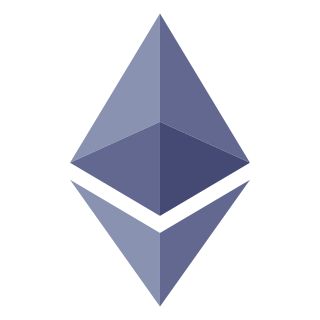
Ethereum is a decentralized, open-source blockchain with smart contract functionality. Ether is the native cryptocurrency of the platform. Amongst cryptocurrencies, Ether is second only to Bitcoin in market capitalization.
ConsenSys is a blockchain software technology company founded by Joseph Lubin with headquarters in Brooklyn, New York and additional United States offices in Washington, D.C. and San Francisco.
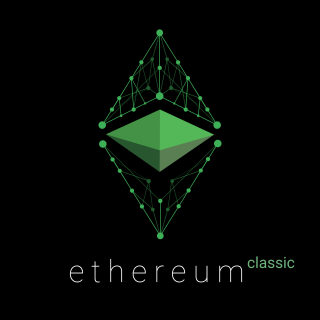
Ethereum Classic is an open source, blockchain-based distributed computing platform featuring smart contract (scripting) functionality. It supports a modified version of Nakamoto consensus via transaction-based state transitions executed on a public Ethereum Virtual Machine (EVM).
Cardano is a public blockchain platform. It is open-source and decentralized, with consensus achieved using proof of stake. It can facilitate peer-to-peer transactions with its internal cryptocurrency, Ada.
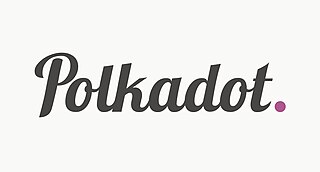
Polkadot is a sharded heterogeneous multi-chain architecture which enables external networks as well as customized layer one "parachains" to communicate, creating an interconnected internet of blockchains. The network uses an environmentally-friendly proof of stake consensus algorithm.

Neo is an open-source decentralized blockchain decentralized application platform founded in 2014 by Da HongFei and Erik Zhang. Since its rebranding to Neo from Antshares in 2017, the project's vision is to realize a "smart economy" by utilizing blockchain technology and smart contracts to issue and manage digitized assets.
Binance is a cryptocurrency exchange which is currently the largest exchange in the world in terms of daily trading volume of cryptocurrencies. It was founded in 2017 and is registered in the Cayman Islands.
A non-fungible token (NFT) is a unique and non-interchangeable datum stored on a digital ledger (blockchain). NFTs can be used to represent easily reproducible items such as photos, videos, audio, and other types of digital files as unique items, and use blockchain technology to establish a verified and public proof of ownership. Copies of the original file are not restricted to the owner of the NFT, and can be copied and shared like any file. The lack of interchangeability (fungibility) distinguishes NFTs from blockchain cryptocurrencies, such as Bitcoin.
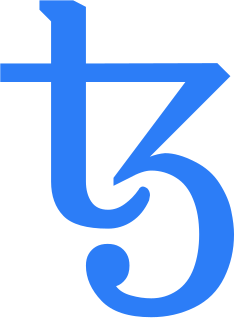
Tezos is a decentralized, open-source proof of stake blockchain network that can execute peer-to-peer transactions and serve as a platform for deploying smart contracts. The native cryptocurrency for the Tezos blockchain is the tez which has the symbol XTZ. As of August 2021, there are about 400 block validating nodes on the Tezos network.
USD Coin (USDC) is a digital stablecoin that is pegged to the United States dollar and runs on the Ethereum, Stellar, Algorand, Solana, Tron and Hedera Hashgraph system. USD Coin is managed by a consortium called Centre, which was founded by Circle and includes members from the cryptocurrency exchange Coinbase and Bitcoin mining company Bitmain, an investor in Circle. The USDC should not be confused with a central bank digital currency (CBDC) as outlined by the Federal Reserve of the United States of America.
Decentralized Finance is a blockchain-based form of finance that does not rely on central financial intermediaries such as brokerages, exchanges, or banks to offer traditional financial instruments, and instead utilizes smart contracts on blockchains, the most common being Ethereum. DeFi platforms allow people to lend or borrow funds from others, speculate on price movements on a range of assets using derivatives, trade cryptocurrencies, insure against risks, and earn interest in savings-like accounts. DeFi uses a layered architecture and highly composable building blocks. Some DeFi applications promote high interest rates but are subject to high risk. By October 2020, over $11 billion was deposited in various decentralized finance protocols, which represented more than a tenfold growth during the course of 2020. As of January 2021, approximately $20.5 billion was invested in DeFi.

Uniswap is a decentralized finance protocol that is used to exchange cryptocurrencies. Uniswap is also the name of the company that initially built the Uniswap protocol. The protocol facilitates automated transactions between cryptocurrency tokens on the Ethereum blockchain through the use of smart contracts. As of October 2020, Uniswap was estimated to be the largest decentralized exchange and the fourth-largest cryptocurrency exchange overall by daily trading volume. In March 2021, Uniswap was generating fees of approximately US$2–3 million daily for the liquidity providers who facilitate liquid markets for the cryptocurrencies being exchanged.
Algorand is a blockchain-based cryptocurrency platform that aims to be secure, scalable, and decentralized. The Algorand platform supports smart contract functionality, and its consensus algorithm is based on proof-of-stake principles and a Byzantine Agreement protocol. Algorand's native cryptocurrency is called Algo.
Chainlink is a decentralized blockchain oracle network built on Ethereum. The network is intended to be used to facilitate the transfer of tamper-proof data from off-chain sources to on-chain smart contracts. Its creators claim it can be used to verify whether the parameters of a smart contract are met in a manner independent from any of the contract's stakeholders by "connecting the contract directly to real-world data, events, payments, and other inputs".
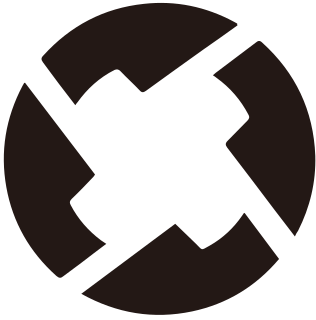
0x is an open-source, decentralized exchange infrastructure that enables the exchange of tokenized assets on multiple blockchains. Developers can use 0x to incorporate exchange functionality into their applications, and market makers can use 0x to create markets for cryptocurrencies and tokens. ZRX, an Ethereum ERC-20 token, is the native governance and staking token of 0x. Individuals who own ZRX can vote on protocol changes and stake their tokens to earn liquidity rewards in Ether (ETH). The project's creator and core developer is 0x Labs.
Solana is a public blockchain platform. It is open-source and decentralized, with consensus achieved using proof of stake and proof of history. Its internal cryptocurrency is SOL. Bloomberg considers Solana to be "a potential long-term rival for Ethereum". Like Ethereum, Solana can interact with smart contracts.






